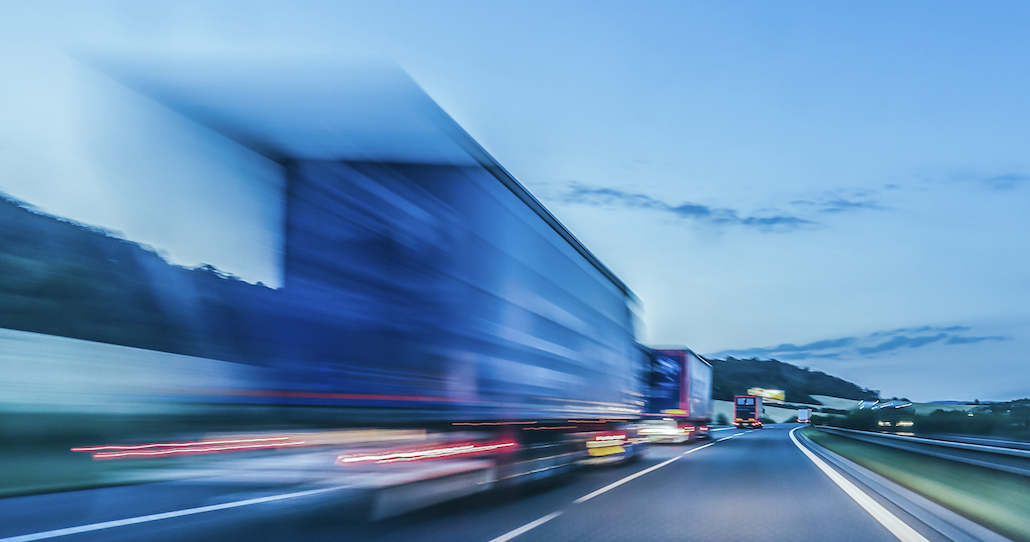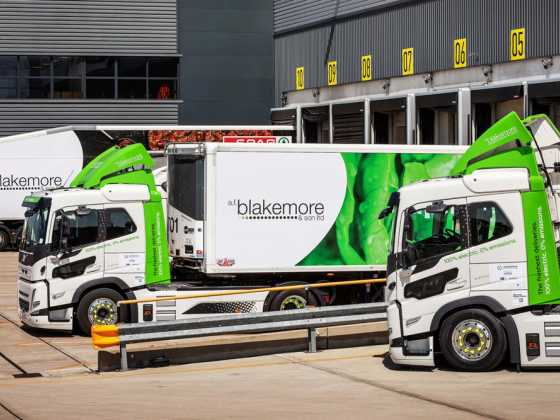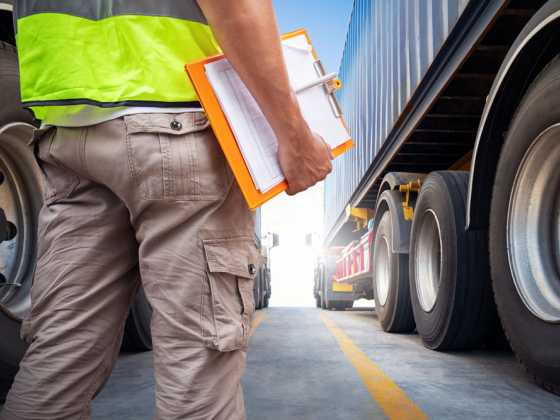The route to net zero for freight and logistics

Logistics UK is launching its ‘Route to Net Zero’ manifesto on 10 November 2021 – Transport Day at COP26 – to present its route map for decarbonising logistics, as well as to communicate the support the industry needs to reach net zero by 2050. Michelle Gardner, head of public policy at Logistics UK, shares the details
Accelerating the decarbonisation of road transport is an urgent priority to protect the future of our planet and will be a key focus at the upcoming UN Climate Change Conference (COP26), to be held in November 2021.
According to COP26’s research, emissions produced by the road transport industry are rising faster than those of any other area of the economy; COP26 leaders are calling on countries and states, vehicle manufacturers, and fleet-owning businesses to all play their parts on the global journey towards net zero emissions. And they are urging that this transition must happen more quickly, with international collaboration and consensus vital on the issue to safeguard the future of our planet.
Logistics UK and its members are keen to support global and national environmental ambitions wherever possible; that is why we are launching our ‘Route to Net Zero’ manifesto on 10 November 2021 – Transport Day at COP26 – to present our route map for the future of logistics and communicate with government and other stakeholders the support industry needs to reach net zero by 2050. The manifesto will be launched via a virtual event, hosted by David Wells, Logistics UK’s chief executive.
During the free-to-attend webinar, Wells will be joined by representatives of businesses which have signed up to Logistics UK’s latest environmental initiative – the Route to Net Zero commitment – who will be presenting their decarbonisation strategies and providing guidance for other organisations keen to move to a net zero operation.
With net zero emissions by 2050 a non-negotiable deadline for industry and government alike, it is essential that all businesses are as prepared as they can be for the complete decarbonisation of logistics; this webinar will provide a vital resource for companies working across all aspects of the sector. For more information, and to book your place – free for both members and non-members alike – please visit logistics.org.uk/campaigns/environment/cop26-the-route-to-net-zero-for-logistics
The route to net zero commitment
As the largest business group representing the sector, Logistics UK is asking its members to commit to decarbonising their operations as quickly, effectively and as urgently as possible to help the UK achieve carbon neutrality by net zero by 2050. We know the pathway to net zero will be challenging for many of our members, as the technology solutions are still being developed, but we are working to ensure our campaign is meaningful and can translate into real progress. Action from our members and the wider logistics industry will go only so far: to achieve net zero, industry needs the right technologies and vehicles that are commercially viable, with the right supporting infrastructure.
The road to net zero
The COP26 community is asking countries to commit to ensuring all new car and van sales are zero tailpipe emission by 2035 or 2040, depending on how advanced their market is, and to put in place policies to accelerate the uptake of zero tailpipe emission cars, vans, buses, and trucks. An announcement by the UK government on the phase out dates for diesel HGVs is anticipated within the coming weeks.
However, the results of Logistics UK’s May 2021 Logistics Performance Tracker survey lays bare the work that respondents believe needs to be done to decarbonise road operations: just under 70 per cent of respondents were dissatisfied or very dissatisfied with the availability of electric HGVs, and 37 per cent for vans. There is significant uncertainty over which fuels will be the most appropriate for HGVs, with differing views around hydrogen, electrification and electric road systems. Logistics UK is urging the government to provide certainty on commercially viable, zero tailpipe emission technologies for HGVs by the mid-2020s; industry will also need to be provided with incentives to help overcome higher upfront purchase prices, until the market for zero tailpipe emission vehicles matures.
With 70 per cent of respondents to the survey also either dissatisfied or very dissatisfied with the availability of supportive infrastructure for alternatively fuelled vehicles, the government must commit to ensuring public refuelling and charge point infrastructure can be rapidly developed, installed and is accessible for use by commercial vehicles, with the strategic road network a priority. Depot charging will be essential, especially for van operators, so a fair and equitable approach to funding power upgrades is needed if this technology is to be adopted.
Whether the future solutions for HGVs are battery electric, electric road systems or hydrogen, all require substantial infrastructure investment and energy capacity.
The logistics industry understands the part it must play in decarbonising the UK economy; Logistics UK will continue working with its members, the government, and other stakeholders to help ensure net zero by 2050 becomes a reality.
For more information, and to sign up to the Route to Net Zero pledge as a Logistics UK member, please complete the application form, available to download on the following page: logistics.org.uk/environment/netzero






